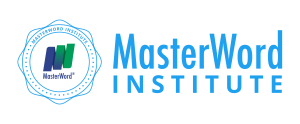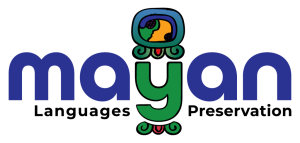It’s National Volunteer Week in the US and a perfect time to reflect on the work of a community project supported by MasterWord that is having an outsized impact on the world.
From Ambitious Vision to Measurable Impact
Across the globe, 40 percent of people lack reliable language access, including 7 million speakers of Mayan languages such as Q’eqchi’, K’iche’, Mam, and Kaqchikel.
In May of 2023, we began ramping up volunteer efforts to “power” the Mayan Languages Preservation and Digitization Project by donating infrastructure, technology, resources, and expertise, significantly speeding up and scaling up project goals.
A community-led effort, the project is an open-source initiative dedicated to preserving and revitalizing Mayan languages spoken by over 7 million people through innovative digital tools and community-driven efforts.

What began as a skeleton team of linguists, educators, and volunteers, has evolved into a living ecosystem with over100 Mayan contributors. The project now reaches classrooms, smartphones, and—most memorably—took the stage at UNESCO’s 2025 Language Technology for All (LT4ALL) conference, where Mr. Baldomero Cuma Chavez became the first native Kaqchikel speaker to address an international UN conference.
Below is a look at what our collective effort has achieved and why it matters for the next generation of Indigenous innovators.
Project Milestones
Category | As of April 2025 |
Community-curated talking glossaries | 30 |
Documented words | 3 million+ |
Terminology Pages | 4,500+ |
Hours of archived speech & song | 300+ |
Mobile & desktop keyboards released | 4 language-specific + 2 universal |
What Makes This Work Stand Out
- Governance by Native Speakers
Led by a Board of Advisors from 5 Mayan linguistic communities and scholars.
- Technology Built for Digital Inclusion
- Keyboards: Universal Mayan, Q’eqchi’, K’iche’, Mam, and Kaqchikel layouts now live on Android and Windows, ending the workaround of substituting Spanish characters.



95%+ of Mayan language speakers use Android devices.
- Audio archives: Hundreds of hours of oral histories are feeding into a text-to-speech pilot for Q’eqchi’, laying groundwork for accessible media in Mayan voices.

- Open-Source Roadmap for Other Communities
Practical Roadmap to Digitization—MasterWord is working with the Mayan Languages Preservation and Digitization Project to develop a richly detailed step-by-by step guide that will benefit other Indigenous communities on the path to digitization.
- Human Stories Behind the Data
Gaspar Tomas, a native Q’anjob’al speaker and glossary moderator based in South Carolina, says, “I love that it is an open-source community effort. This is an unbelievably valuable resource and I’m so excited to be a part of it.”

“It has been very beautiful to help because we can express our culture, language, and traditions—and ensure they are not lost,” says Jennifer (Mam speaker).
The UNESCO Moment - Why It Matters

When Baldomero walked onto a Paris stage and spoke in Kaqchikel at LT4All 2025, he was making history. Dr. Winston Scott, Director of the Mayan Languages Preservation & Digitization Project, explains that “for centuries, Mayan languages have been marginalized, their speakers silenced. Today, Baldomero’s speech in Kaqchikel is a declaration – our languages belong in global discourse, and technology must include them.”
Baldomero Cuma Chavez’s participation in LT4All 2025 highlights the growing momentum for Indigenous language recognition, aligning with the goals of UNESCO’s International Decade of Indigenous Languages (IDIL 2022-2032).
What Comes Next This Year?
- First Neural MT Model for a Mayan Language
- Cholsamaj Publishing in Guatemala – collaborating to produce educational resources in print and digital media in Mayan languages.

About the Mayan Languages Preservation & Digitization Project
Launched in May 2023, the Mayan Languages Preservation and Digitization Project is an open-source initiative dedicated to preserving and revitalizing Mayan languages through innovative digital tools and community-driven efforts. From talking glossaries to localized websites, the project is creating a digital framework that empowers Mayan speakers and supports their linguistic and cultural heritage. The project is sponsored and supported with the technology and expertise of MasterWord, a language services company and partner organization of UNESCO’s International Decade of Indigenous Languages.
For more information, visit: https://mayanlanguagepreservation.org
Follow the project on social media at:
https://www.instagram.com/mayanlanguages/
https://www.facebook.com/profile.php?id=61564019233483
https://www.linkedin.com/company/mayan-languages-preservation-project/

